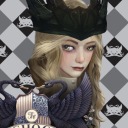
"You are dripping on my lovely new floor," said Rafal. Rhian blinked at the black stone tiles, grimy and thick with soot.
595 posts
In The Modern Publishing Landscape, These Days, I Think Like We Do Not Have Many (if Any) Point-of-view
In the modern publishing landscape, these days, I think like we do not have many (if any) point-of-view characters with low social motivation for whatever reason.
Sure, there are lots of characters with social anxiety or other perceived or legitimate foibles to overcome, there are many YA villain origin stories, and there are many unpalatable, traditionally "unlikable" men in classics, but disregarding those, who else do we have?
Can the state of openly being alone (and content) rarely be presented as morally-neutral or as the end result of a narrative? Must it always be that either being alone is the starting point, so there's room for "personal growth," or that being alone is seen as "undesirable" and/or an indication that the person alone has a "problem" or something otherwise wrong with them, like a deficit or moral failing that in some kind of karmic way gives them "what they deserve," which is being alone and discontent with it?
Characters with society anxiety, any differences in communication, or other reasons that interfere with forging connections "don't count" because they may still be motivated. Traits such as these only stand in the way of gaining relationships, as plot obstacles. They aren't intrinsically tied to indifference or to low motivation. So, these characters clearly are not experiencing a lack of interest. And they are not the ones rejecting others. Thus, they "don't count" as far as the archetype that I'm looking for goes.
Characters who undergo villain arcs or otherwise negative arcs may want to maintain their relationships or gain them, so some examples are immediately disqualified (hence not having low social motivation), even if they are the type of character most likely to alienate themselves by a story's end, conflicting with what they wanted.
(Unfortunately, Coriolanus Snow, who is quite close to the type of protagonist I'm searching for "doesn't count" because he has some drive to keep people in his life.
Rafal Mistral partially "counts," and is satisfying as a character, but also doesn't count because he temporarily makes "friends" or allies, depending on how you look at his exploits. Yet, despite all this, not having friends isn't exactly framed as a morally-neutral state either, so he is also disqualified by the end. Basically, he does have low social motivation, but his narrative lacks the conditions that would make the natural consequences of that low motivation play out for themselves. He is always surrounded by people, even if he hates every last one of them.
And, generally speaking, the usual, moody-broody, "misunderstood" YA love-interests very easily "don't count" because they have a desire to get closer to their object of affection.
Even Katniss Everdeen, an overall good person, who usually views herself as "unlikable," befriends others, originally for pragmatic, survival purposes. However, she does start with low social motivation, so that's something in her favor.
And yes, I'm aware that we need other people in this world—I would just like to see someone prove that supposed truth wrong once. And perhaps succeed in their world, if that's not too much to ask for.)
Also, are there any instances of characters who progressively alienate themselves from others, in which that progression is not inherently seen as negative? Like, what about non-corrupt misanthropes? Are there few of those in literature? (Maybe—Eleanor Oliphant from literary fiction counts, but something about that book did not appeal me and I didn't finish it.)
Classics guys sort of "count," but I haven't really seen examples of any comparable protagonists today since many authors and readers write and look for "relatability" in blank slate everyman figures oftentimes.
(I'm not done with Crime and Punishment yet, but Raskolnikov is very tentatively looking like a safe bet for a character who may end up alone and who may not be completely malcontent over such a fate, even if I'm expecting tragedy. I'm that not far along, but I also wouldn't mind it too greatly if he died, I suppose.
And even Sherlock Holmes has Watson as his constant, even if he's notoriously asocial! So he "doesn't count" either.
Carol from Main Street also comes close, but still ultimately desires approval from others.
Maybe no one is truly immune to humanity and I should give up on this notion?)
How many pov characters out there are 1) apathetic toward the masses and 2a) either alienate themselves as the plot progresses or 2b) do not make any friends? (I will allow them making friends and consequently losing them though because that still ends in net zero!)
Indeed, this "gap" in protagonists I've been running into lately, especially with coming-of-age arcs and protagonists whose arc is some form of "getting out of their shell," is: why do we (almost?) never see protagonists who just flat-out don't progress in terms of connecting with fellow humans?
Wouldn't having even a handful of those types be reflective of reality? (We as a society are more disconnected than ever, to be fair, despite constantly having access to one another via technology.)
Or I would completely understand it, if it were narratively impractical to have a plot in which a protagonist makes zero friends. Maybe, it's a near-unwritable form for a story?
So, my question is: does anyone have book recommendations, which present a character whose end goal is not to make friends or forge connections (any other ambitions or motivations are fine) and whose state of being friendless both lasts and is regarded as morally-neutral or as not outright evil? Any genre is fine. High fantasy is preferable. I am stumped.
(I also wouldn't mind recommendations of books in which the protagonist is vilified due to being alone, even if that is not my primary query here.)
-
 phyrenix liked this · 8 months ago
phyrenix liked this · 8 months ago -
 akaeijis liked this · 9 months ago
akaeijis liked this · 9 months ago -
 desire-to-consume liked this · 9 months ago
desire-to-consume liked this · 9 months ago -
 valecst16 liked this · 9 months ago
valecst16 liked this · 9 months ago -
 eshtersblog liked this · 10 months ago
eshtersblog liked this · 10 months ago -
 thephilomathhobbyist liked this · 10 months ago
thephilomathhobbyist liked this · 10 months ago -
 redpirateflag liked this · 10 months ago
redpirateflag liked this · 10 months ago -
 moodsbon3s liked this · 10 months ago
moodsbon3s liked this · 10 months ago -
 vinbass liked this · 10 months ago
vinbass liked this · 10 months ago -
 finicky-finnick liked this · 10 months ago
finicky-finnick liked this · 10 months ago
More Posts from Liketwoswansinbalance
How many languages do u speak??
English is my first language and Spanish is my second. However, I'm not entirely fluent in Spanish, even if I understand the vast majority of what's spoken to me. Yet that generally applies to more casual discussion because I find it hard to write academically in Spanish. Once I wrote a really brief, simple screenplay scene though. That's probably the most I can do currently. Plus, I suspect my Spanish is passively going in a retrograde direction since then because I haven't used it that frequently and it needs maintenance. If I am exposed to Italian, I can understand some singular words here and there (probably because of cognates or near-cognates), but that's it.
I don't think it counts as a language as it's more of a dialect, but I am able to read Middle English (ME). Except, I rely heavily on Norton Critical Edition annotations, so it may not truly count. (Fun fact: Shakespeare is classified as New English (NE or our modern English), which shocked me when I first heard it.)
Oh, and I kind of want a second opinion on something, so I may as well put it out here: is learning Latin worth it? You see, I wish I could just... acquire it, as another language, because I want to be able to get all the references John Milton (and some others) make if I ever read more of his works, so I could feel "hyperliterary," like what I've been told about the lens with which he saw the world. Then again, the annotations are enough for me to get certain words' provenance, or why one word was a significant choice over another, so I feel like it would be useless otherwise.
What Rafal's Physical and Immaterial Coolness Could Represent
❄️ ❄️ ❄️ ❄️ ❄️ ❄️ ❄️ ❄️ ❄️ ❄️ ❄️ ❄️ ❄️ ❄️ ❄️
As a forewarning, this post is more... observational and has less of a singular, hard-hitting point to it. (Also, see Conan Gray's "Fight or Flight" song for reference, as, most of this post occurred to me in relation to that very song, if you interpret parts of it as representing Rafal's internal monologue on the subject of Rhian's substitutes during Rise.)
Also, this is a long post, so it's going under a cut.
⸻
Why is Rafal's immediate response to personal hurt avoidance of all things? Isn't that kind of a heightened, overly instinctive, clearly "uncool" reaction to have?
And yet, strangely, we still classify it as in character for him. His leaving was, arguably, the most iconic and true-to-self thing he did across both prequels. So, I want to ask: why is that?
That he just up and left seems apathetic and could be construed as part of his cold, cool nature, of course, but still—when we look at what his reaction truly is: he chose flight.
(Flight as opposed to the alternative fight, freeze, or fawn responses.)
FLIGHT! Like, can you believe it? This man, who's so headstrong and willing to stare down anything, chose flight. Let that revelation sink in. (Maybe this is more obvious than I think, but I can't believe I hadn't thought of this weird discrepancy before. Flight!)
Anyway, to explain Rafal's reaction to (potentially) having been emotionally hurt by his argument and corresponding bet with Rhian at the start, I'm going to reference a theory from an old post, as it has suddenly become relevant once again.
In short, the idea is about how Rhian's expressions of authority are personal while Rafal's are nearly always impersonal. Rhian is a master of social dynamics, considering how deftly he lies in Fall to gain favor from others and influence their views of him. And, this makes sense because he once cared so much about how he was perceived, as we take into account his original self-consciousness and his high-minded, conscionable tendencies from Rise. He is the one who wields interpersonal power as Rafal, correspondingly, wields impersonal (often more tangible and brutish) power.
If anyone would like more elaboration, here's an excerpt from that old post:
The strange thing is, in Fall, Rafal admits to having conceded a lot of the time to Rhian in the past, in the face of smaller, pettier arguments, a trend which also represents his yielding to Rhian's (supposedly nonexistent) authority in the early days. That tendency seems self-contradictory of Rafal, but perhaps, even Rafal's authority is situational. He's capable of exercising it over everything and world, but not over his own brother. He can't rein Rhian, the inevitable force, the "fatal" (to invoke both death and "fate") tides of change, the Prime Mover, in. Meanwhile, Rhian is the inverse of that. Rhian cannot exercise authority over everything and the world, but he can do so over his own brother. Besides, Rafal, often by sorcery or by outright manhandling, manipulates and exerts his physicality over others and his environment while Rhian rarely does. And yet, Rafal (from what I remember) never so much as lays a hand on Rhian during Rise (in Fall, everything changes and escalates). I don't yet know why this is, but I think this observation is true most of the time. At least, I haven't thought of any exceptions yet. The working hypothesis I have is that Rhian (being the brother who chose to stay in the comfort and limited confines of the home, according to the Bettelheim text's ideas) only initially felt comfortable to do anything there. To act, and exercise his authority in an intimate, narrow, personal way. By contrast, Rafal (the more worldly, well-traveled, and inconstant brother) wants to gain independence from their stifling "home" life, under the Storian, and, as a result, upon his return, could've felt like a stranger in his own home and with Rhian (who's also changed in his brother's absence regardless). Thus, while Rafal can certainly exercise his authority impersonally, he doesn't feel at ease exercising authority over the familiar because it could be too close for comfort, too unsettling, unsettlingly different and the same, like he can't shed the disbelonging that drove him out of the fairy-tale construct of the "home" as a safe, childhood refuge in the first place—when Rhian first questioned his very core purpose and Evil's existence.
Thus, again, Rafal's ability to wield power is, without exception (I think), always impersonal.
The closest he comes to Rhian's brand of power, which involves acting on a smaller scale or more on an individual, one-to-one level and being intimate, are his interactions with Hook and Midas. And, despite those seductive instances, Rhian is still the master of all the smaller scale exploits, like with Hephaestus and the Pirate Captain rescuing him from the Doom Room where he'd been "abandoned," whenever these acts are in fact intentional.
Yes, Rafal possibly unwittingly, by being more open with his victims, has broader appeal, but that side of him isn't all pure strategy, done with intentionality. Part of it is just how he is. Rhian, unlike his brother, strikes at something inside people that doesn't just rely on scare tactics and classic, one-dimensional intimidation. In Fall, he gains a creepiness factor and the ability to lie convincingly, importantly, without blushing.
Also, I want to commentate a little on Rafal's novel instance of blushing during Fall, which was quite unlike his usual self.
First, here's some context about physical coolness, the socially-perceived "cool factor," and how blushing can only ever be sincere and is valuable because it is involuntary from Quiet by Susan Cain:

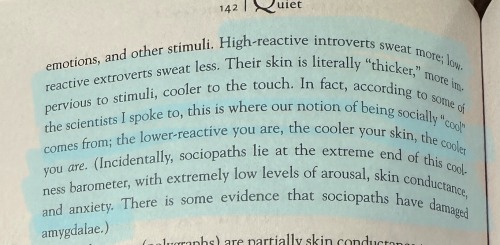
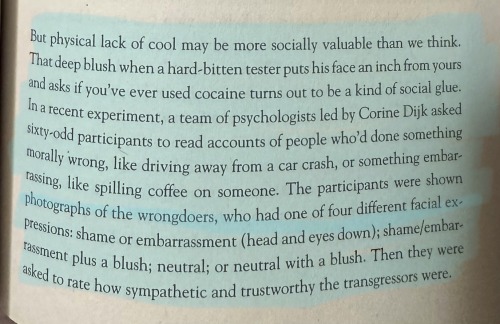
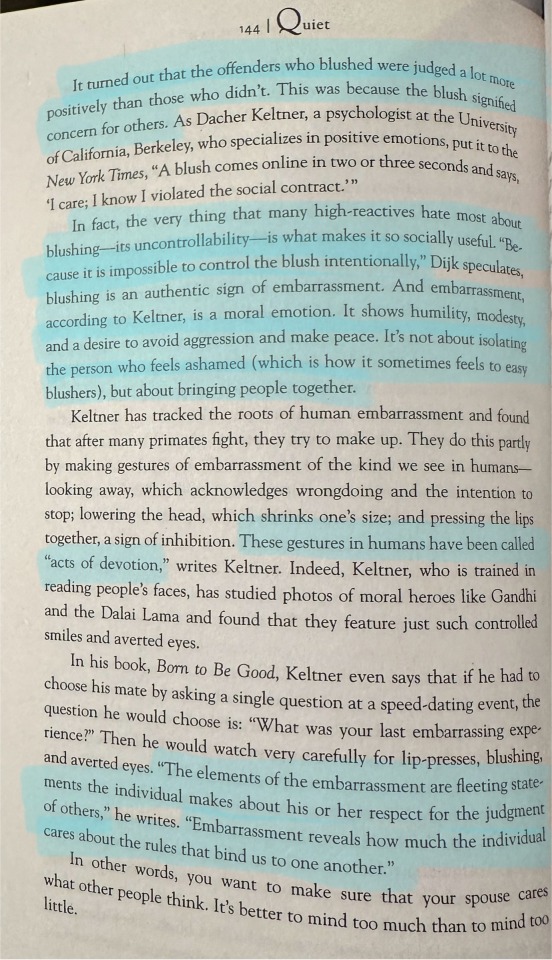
I suspect Fall aimed to establish Rafal as more "trustworthy," and as more subject to having humility thrust upon him, than he had been in Rise, when he had previously been insurmountable.
Yet then, after that "invulnerable," unaffected precedent he set about himself, he started blushing, signaling that he suddenly began to care, and that the opposite was true of Rhian as Rhian changed throughout Fall and became more immune to his old, constant feelings of shame that originally must've formed his moral compass.
Also, Rafal gets more points towards being an actual sociopath! He just partially lost his former, low-reactive temperament when he turned "Good."
One other thought of note:
Has anyone ever headcanoned Rafal as having an avoidant attachment style? To complement that, Rhian would probably have an anxious attachment style.
Essentially, the traits of these attachment styles are Rafal and Rhian personified.
Rafal:

Rhian:
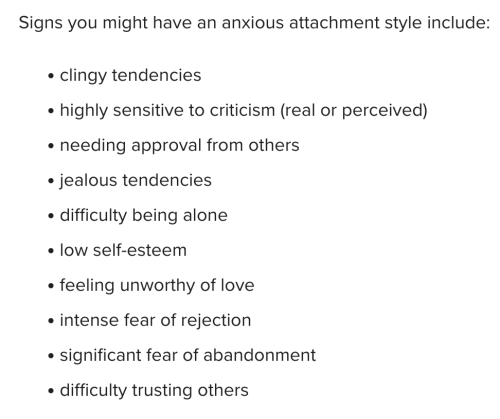
Correct me if I'm wrong, but I think, jointly, prequel Rafal and main series "Rafal" are the only character who ever manages to rival the sheer volume of outfits Sophie has. Tedros and Agatha don't even come close.
Thus, I wanted to ask:
Does anyone you know irl know that you have this Tumblr account??
Yes, a few people know.
RIDE AT DAWN, my faithful soldiers(?). You may have a chance at saving me yet! And, surely, you'd kill for me, right? And pledge yourselves to my campaign to rule the Woods?
Then again... I kind of don't want to back down—the Pen is shiny and an offer of immortality? How tantalizing. Might as well let it stab me, just this once.
And whatever the outcome... I'll pay you in something better than "your weight in gold." Far better. That's a promise. Oh? Ahem, I almost forgot: something more ethical too. Definitely more ethical. There's nothing to fear.
Correct me if I'm wrong, but I think, jointly, prequel Rafal and main series "Rafal" are the only character who ever manages to rival the sheer volume of outfits Sophie has. Tedros and Agatha don't even come close.
Thus, I wanted to ask: